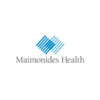
Guanfacine Extended Release for the Reduction of Aggression and Self-injurious Behavior Associated...
Prader-Willi SyndromeAggression21 moreThis is a placebo-controlled clinical trial to assess whether Guanfacine Extended Release (GXR) reduces aggression and self injurious behavior in individuals with Prader Willi Syndrome (PWS). In addition, the study will establish the safety of GXR with a specific focus on metabolic effects.

An Open-label, Dose Escalation and Double-masked, Randomized, Controlled Trial Evaluating Safety...
Leber Congenital Amaurosis 10Blindness9 morePQ-110-005 (BRIGHTEN) is an open-label, dose escalation and double-masked, randomized, controlled study evaluating safety and tolerability of sepofarsen administered via intravitreal (IVT) injection in pediatric subjects (<8 years of age) with LCA10 due to the c.2991+1655A>G mutation over 24 months of treatment.

NeuroVision vs Standard Neuromonitoring
Neurologic DeficitsThe purpose of this study is to perform a prospective, randomized, controlled clinical trial to assess the utility of IONM in patients undergoing primary, single or multilevel lateral spinal procedures. Subjects will be randomized to undergo a lateral spine surgery with the use of NeuroVision® IONM or conventional hospital based IONM to assess incidence of new-onset neurological injury.

Fasciculations in Healthy Adults After Consumption of Caffeine: an Ultrasound Study
Neurologic SymptomsFasciculations are clinically defined as spontaneous intermittent contractions of a portion of muscles. Depending on associated symptoms they may be a sign of lower motor neuron disorder. The aim of this study is to investigate if fasciculations also occur in muscles after caffeine consumption and if there is a difference between the muscles of the arms and legs. The primary endpoint is detecting fasciculations in the muscles of the arms and legs after the consumption of caffeine in healthy adults (20-35 years old and 35-50 years old) Secondary endpoints of the study compares the proportions of fasciculations between two age groups (20-35 years old and 35-50 years. A population of 26 subject per group and a total of 52 subject will be recruited for the study. A sample size of 26 in each group will have 90% power to detect a difference between the two groups using a Fisher's exact test with a 0.05 two-sided significance level. Study Intervention Study participants will consume caffeine (6mg per kilogram bodyweight) before the second ultrasound screening. Using ultrasound the sternocleidomastoideus, biceps brachii, interosseus dorsalis, quadriceps femoris, gastrocnemius and abductor hallucis will be measure for 120 seconds 1o minutes before and 45 minutes after caffeine consumption. Study Duration and Schedule Estimated duration for the study will be around 6 months.

Cognitive Outcomes After Dexmedetomidine Sedation in Cardiac Surgery Patients
DeliriumCognitive Dysfunction16 moreAnesthesia is a drug induced, reversible, comatose state that facilitates surgery and it is widely assumed that cognition returns to baseline after anesthetics have been eliminated. However, many patients have persistent memory impairment for weeks to months after surgery. Cardiac surgery appears to carry the highest risk of postoperative cognitive dysfunction (POCD). These cognitive deficits are associated with increased mortality, prolonged hospital stay and loss of independence. The investigators propose to investigate the role of Dexmedetomidine (DEX) in preventing long-term POCD after cardiac surgery and enhancing early postoperative recovery. It is anticipated that DEX will be the first effective preventative therapy for POCD, improve patient outcomes, and reduce length of stay and healthcare costs.

Acute Transcranial Direct Current Stimulation in Patients With Systemic Autoimmune Myopathies
MyopathyNeurologic Manifestations1 moreSystemic autoimmune myopathies are a heterogeneous group of rheumatic diseases that primarily affect the skeletal muscles. The transcranial direct current stimulation technique has been frequent, for example, in patients with ischemic stroke or for the optimization of muscular performance in athletes. However, to date, there are no studies evaluating this technique in patients with systemic autoimmune myopathies. Therefore, the main objective of the present prospective, randomized, double-blind, placebo-controlled study is to evaluate the safety and efficacy of the application of acute transcranial current stimulation session in patients with systemic autoimmune myopathies.

Impact of Postprandial 'Exercise Snacks' on Protein and Glucose Metabolism Following a Period of...
InactivityPhysical10 moreThe purpose of this study is to assess the impact of 3-days reduced physical activity (<1500 steps/day) with/without 'exercise snacks' (15 chair stands with calf raises every 30 min) on skeletal muscle metabolic health.

Dopaminergic Therapy for Frontotemporal Dementia Patients
Frontotemporal DementiaDementia19 moreThis is a phase IIa 24-week randomized, double-blind, placebo-controlled study. The study is designed to evaluate the efficacy and safety of Rotigotine (RTG) transdermal administration at the dosage of 4 mg or 6 mg per day versus Placebo (PLC) in newly diagnosed behavioural Frontotemporal Dementia (bvFTD) patients. 75 patients with a diagnosis of probable bvFTD will be randomly allocated to the 3 treatment arms (RTG 4mg/day, RTG 6mg/day or PLC), with 25 patients per group. Clinical and neurophysiological measurements and brain metabolism via FDG-PET will be collected before and after drug administration.

A Study to Evaluate Efficacy, Safety, Tolerability and Exposure After a Repeat-dose of Sepofarsen...
Leber Congenital Amaurosis 10Blindness9 moreThe purpose of this double-masked, randomized, controlled, multiple-dose study is to evaluate the efficacy, safety, tolerability and systemic exposure of sepofarsen (QR-110) administered via intravitreal injection in subjects with Leber's Congenital Amaurosis (LCA) due to the CEP290 p.Cys998X mutation after 24 months of treatment

Transcranial Doppler During Liver Transplantation
Liver TransplantationUltrasonography5 moreThis is a prospective study that would investigate the transcranial doppler (TCD) changes during the living donor liver transplantation and the association between the TCD changes and the post-transplant neurological complications.
